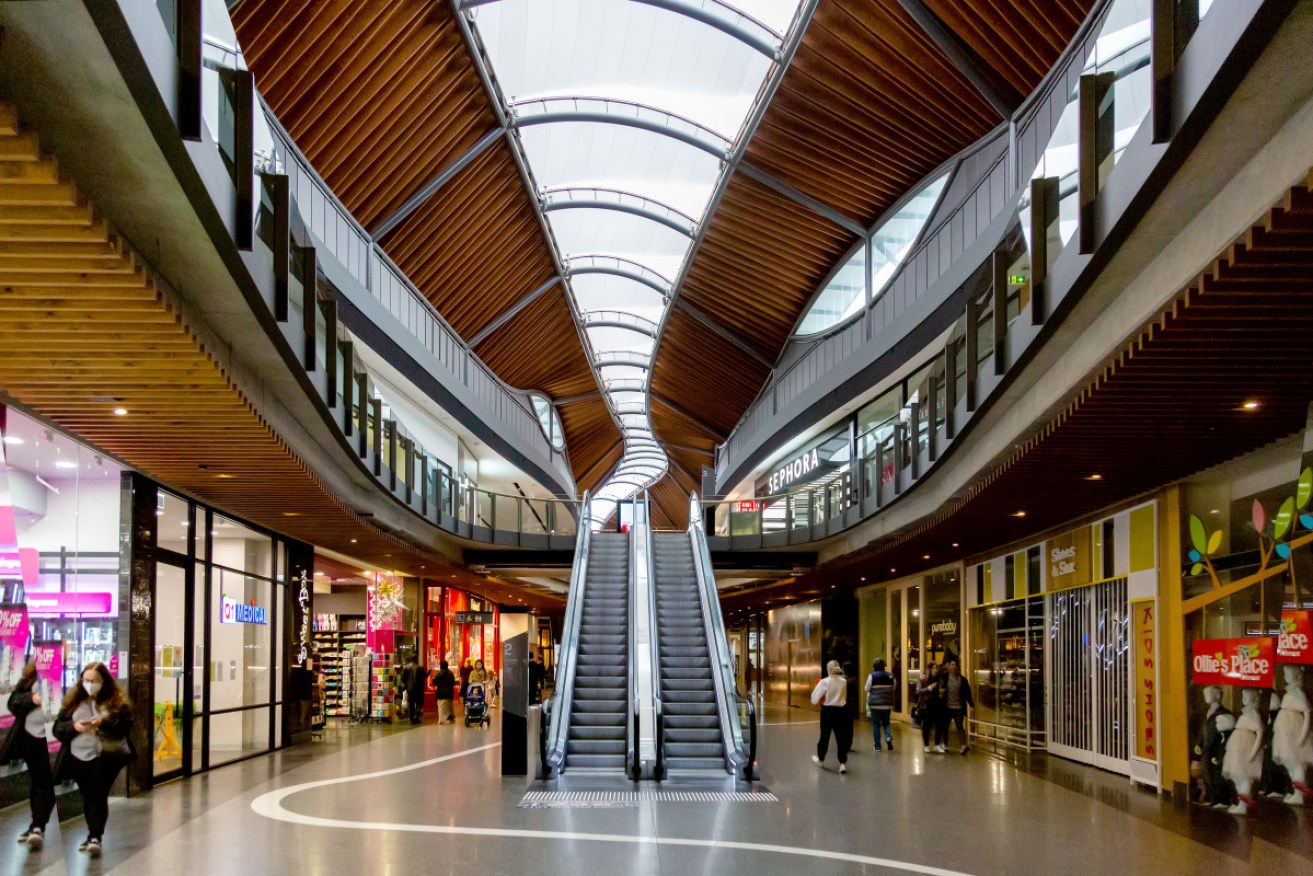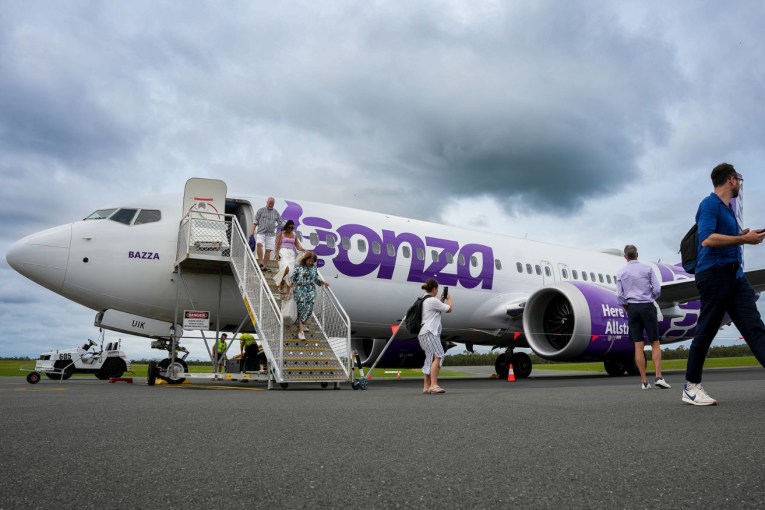Even high-income earners have cut back, survey finds


Shopping centres may be quieter this year, with most Australians planning on cutting back their spending. Photo: Getty
Even high-income earners have cut their spending as interest rate rises and inflation erode disposable income and savings, with 75 per cent of Australians planning to buy less this festive season because of cost-of-living pressures.
Paul Zahra, chief executive of Retail Association of Australia, said the company’s spending projections, in collaboration with Roy Morgan, indicate “2023 will edge in line with last year’s results, reaching $66.8 billion”.
“The marginal increase in spending this year is being inflated by supply-chain price increases, particularly in food, and an overall increase in Australia’s population,” he said.
“If you exclude these factors, overall Christmas spending is projected to be in decline year on year.”
A new report from Auctane has found Australians are likely to spend $4.8 billion on online marketplaces over the Christmas period, but 78 per cent are planning on spending less or delaying purchases compared to 54 per cent in 2022.
While 46 per cent of people surveyed said they plan to spend less than last year, 64.3 per cent of online merchants expect consumers to spend the same as previous years.
Dr Marian Makkar, senior lecturer in marketing at RMIT University, said people’s spending habits are changing because of economic pressures.
“It happens when there’s job insecurity, student debt or inflation, people aren’t saving as much,” Makkar said.
“People at the moment can’t afford to pay their mortgage, and spending with Australian businesses or retailers is going to drop, and it’s quite expected and natural.”
Retailers and e-commerce outlets already feel the pinch.
Spending dip
Australians’ online spending has dropped by more than 5 per cent compared to the previous year, according to data from the Airwallex Q3 Digital Economy Index, resulting in a $2.9 billion dip in retail and e-commerce sales.

More Australians than ever are ordering online and having their purchases delivered. Photo: Getty
Matt Sek, Airwallex’s Australia and New Zealand president of growth, said the economic environment over the past 12 months has spooked Australians.
“As things have stabilised we can see they’re taking the time to do their research and hunt for the best bargains before they part with their hard-earned cash,” he said.
“The businesses that do the best over the next three months will be the ones that find the savings and efficiencies in their cost base to offer the sorts of discounts and deals Australians are used to during peak sales season.”
And 64 per cent of high-income earners surveyed by Auctane said they were planning to cut spending, up from 58 per cent last year, while there was a 5 per cent increase of middle-income earners planning to cut back.
Spending on household goods has declined for eight consecutive months, according to the ARA, and Zahra said with many retailers making up to two-thirds of their profits during Christmas trading, this year is shaping up as a “period of uncertainty”.
“[While] much has been said about the cost-of-living crisis, retailers are also experiencing a cost-of-doing business crisis,” he said.
“Costs such as labour, rent, utilities, materials, and supply chain costs are increasing across the board.”
Changing behaviours
Among Australians surveyed, 38 per cent cited inflation and 20 per cent said a lack of savings were their biggest concerns heading into the Christmas season.
Makkar said people are now relying more on alternatives to retail purchases like the sharing economy.
“People don’t want to be locked down, we’re seeing that with renting, borrowing and sharing,” she said.
“They might stay at an Airbnb instead of a hotel, they may rent a dress for a wedding or rent a car through a sharing platform.”
She said one area retailers could move into is introducing a line of ‘pre-loved’ products, a concept pioneered by socially-conscious clothing brand Patagonia.
“This is something that is missing in the Australian marketplace, we see it in the United States quite often,” Makkar said.
“If you look at things like Facebook Marketplace or even smaller groups like the Buy Nothing Project, those are things people are very much into.”
Shift to online stores
Another long-term change in consumer behaviour has been the shift to online shopping, which isn’t stopping anytime soon.
According to the Auctane report, online marketplaces continue to become more popular among Australian shoppers, with 72 per cent saying online marketplaces offer better value than individual retailers.

Australians are continuing to turn to online retailers like Amazon for value. Photo: Getty
“I do believe we are going to see a big impact and a drop in spending at Australian businesses,” Makkar said.
“Spending isn’t going to stop, we’re just going to see a difference in the type of behaviour that we’re seeing with consumers now.”








